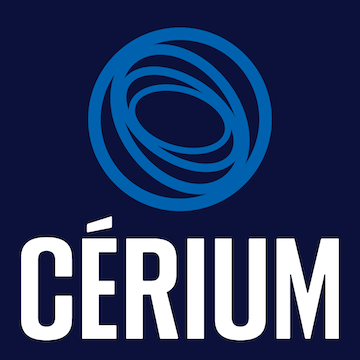Experts in: Empire and imperialism
AYANGMA BONOHO, Simplice
Professeur adjoint, Chercheur
- Health
- International relations
- Development
- Africa
- Middle Africa
- 19th century
- 20th century
- 21th century
- Colonization and decolonization
- Colonies
- Empire and imperialism
- Economic history
- Social history
- Postcolonialism
- Sub-Saharan Africa
- Cameroon
- Congo
- Gabon
- Congo, the Democratic Republic of the
- Central African Republic
GRONDIN, David
Professeur titulaire, Chercheur
- Surveillance studies
- Political communication
- Mobility studies
- International communication
- War in mass media
- Security, international
- Globalisation in mass media
- American studies
- Risk Management
- Digital culture
- Border security and customs
- Borders
- Mobilities research
- Mobility
- Algorithmic governmentality
- Nouvelles technologies
- Artificial intelligence
- Popular culture
- Global Governance
- Empire and imperialism
- Cultural studies
- Visual culture
- Media Studies
- International relations
- Social movements
- Migration
- American politics
- United States
- North America
- Canada
- Modern Times
I joined the department in 2017, after spending eleven years as a professor in the School of Political Studies at the University of Ottawa. I am happy to have found a new terrain in communication and media studies and to have started a new chapter teaching international communication, media studies, political communication, and popular culture at Université de Montréal.
I am first and foremost fascinated by the relationship between culture, science, media, technology and society, power/knowledge, militarization, and war and security in the US context and in the geopolitical frame set by globalization. My current work brings me to consider issues dealing with the security/mobility nexus and the redefinition of citizenship in the digital age, notably as it relates to borders, surveillance, and governance.
Through communication, we are, consciously or unconsciously in relation with the world. I am heavily interested in our relationship with digital governance – and by extension, to digital media. I thus pay a particular attention to communication infrastructures in security governance, which leads me to study new forms of surveillance in the surveillance society enacted by the digital. As digital media and new media, algorithms are a privileged topic to capture the media infrastructures for the communications they embody as well as to what they make possible for media technologies governing subjects and controlling spaces.
My current research coalesces around the forms of surveillance three main areas of inquiry: 1) the surveillance of mobilities, algorithmic security, and techno political infrastructures governing North American borderlands; 2) the militarization of everyday life, the surveillance society, and the culture of the US national security state; 3) US popular and media cultures, with an emphasis on war and surveillance on the small and big screen and another on comedy, infotainment media, and televisual satire.
In my research, I both mobilize communication and media studies, notably popular culture, cultural industries and cultural studies scholarship, as well as issues of mobility and surveillance, with a reflection that addresses power manifestations in communication and the effects of communications. As international communication, media cultures, political communication, popular culture, cultural studies, and new media studies constitute my main research expertise in media studies and communication, my work is well served by my interdisciplinary bent and undisciplined perspective that draws upon the fields of international relations, international political sociology, political geography, political anthropology, American studies, security studies, and science and technology studies.
At Université de Montréal, I share my research time between the Laboratory on Popular Culture, Knowledge, and Critique (CPCC), the International Center on Comparative Criminology (CICC), and the Montreal Center for International Studies (CERIUM).
MEREN, David
Professeur agrégé, Chercheur
- International relations
- Canada
- Foreign policy
- Development
- Empire and imperialism
- Colonization and decolonization
- Colonialism
- 20th century
- Modern Times
- Canada (Québec)
- Quebec
- Globalization
- Nationalism
I have taught the international history of Canada and Quebec at Université de Montréal since 2011. My goal as a historian is to use cultural and social history, as well as postcolonial studies, to obtain and promote a deeper understanding of the history of Canada and Quebec in the world, and the way in which their international activities (governmental and non-governmental) have shaped and been shaped by the lived experiences of the peoples living in the northern portion of North America. I employ international history to explore Canada and Quebec as projects of rule, while situating them and their populations in global currents.
My first book, With Friends Like These: Entangled Nationalisms and the Canada-Québec-France Triangle, 1944-1970 (UBC Press, 2012), examines the complex triangular dynamic between Canada, Quebec and France by situating this in the broader currents of the history of globalization. It explores the concept of “nation” in an increasingly interconnected world, and parallel to this, the efforts to manage multiple overlapping identities. This monograph also is part of my ongoing effort to shed light on the question of “empire” in Canadian and Quebec history. These research interests also led to my co-editing a volume that offers and encourages a critical reinterpretation of Canadian international history through the prism of race Dominion of Race: Rethinking Canada’s International History (UBC Press, 2017).
I also explore the history of settler colonialism in Canada and Quebec, as it is impossible to understand Canadian and Quebec international history without referring to the complex history of the relationships between Indigenous Peoples and settlers. This idea also underpins my current research project, an exploration of the entangled history of Canadian development assistance after 1945 and Indigenous-Canadian relations.
